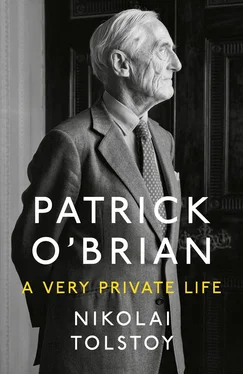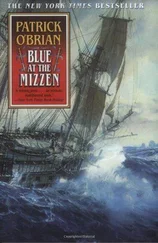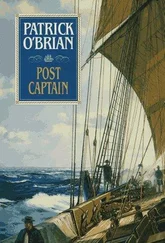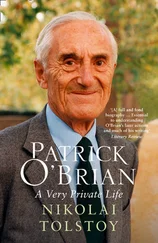1 ...7 8 9 11 12 13 ...42 As this account has established, it is a regrettable but undeniable fact that Patrick was by nature and upbringing ill-suited to engage with young children, whose waywardness, unreflecting lack of tact and blithe innocence of the ways of the world tended all too readily to affront and alarm his fragile composure. However, once they attained an age which he regarded as providing a measure of rationality and intelligence, his attitude shifted remarkably. In one of his novels he describes how: ‘When Madeleine was a little girl she was a plain creature, and timid. Her form was the undistinguished, pudgy, shapeless form of most children.’ As an adolescent, however, she swiftly blossoms into a beautiful, intelligent, self-possessed young lady. [9] Конец ознакомительного фрагмента. Текст предоставлен ООО «ЛитРес». Прочитайте эту книгу целиком, купив полную легальную версию на ЛитРес. Безопасно оплатить книгу можно банковской картой Visa, MasterCard, Maestro, со счета мобильного телефона, с платежного терминала, в салоне МТС или Связной, через PayPal, WebMoney, Яндекс.Деньги, QIWI Кошелек, бонусными картами или другим удобным Вам способом.
It is clear that he recognized this evolutionary transformation from caterpillar to butterfly in the case of his son. Furthermore, as I have shown in the first volume of this biography, it is worthwhile to stress that it was only when teaching Richard that his patience was tried: outside the ‘classroom’ Patrick became charm and enthusiasm personified.
Following the move to France, Patrick’s equanimity was restored by the generally promising path of his literary work. Shortly before their departure from Cwm Croesor, he had assembled a collection of short stories. Although in 1947 he had published A Book of Voyages , an anthology of seafaring episodes, this slim collection was to comprise the sum total of his original published literary projects since 1939, when the first of its tales was written. Although reflecting his sparse creative output over the preceding decade, the stories are beautifully written and highly imaginative, and were received enthusiastically by his literary agent, Spencer Curtis Brown. He passed them in turn to Fred Warburg, of the publishers Secker & Warburg, who on the eve of Patrick’s departure for France expressed similar appreciation:
We have now read and admired the remarkable stories of Patrick O’Brien [ sic ], at present entitled COUNTRY CONTENTMENTS, and should certainly like to publish the book … We do not like the title proposed by O’Brien and tentatively suggest THE LAST POOL as a possibility.
Patrick had adopted the title Country Contentments from his copy of a delightful work of that name, a guide to rural activities by the seventeenth-century writer Gervase Markham, which Patrick had sought to put into practice in Wales. [10] Конец ознакомительного фрагмента. Текст предоставлен ООО «ЛитРес». Прочитайте эту книгу целиком, купив полную легальную версию на ЛитРес. Безопасно оплатить книгу можно банковской картой Visa, MasterCard, Maestro, со счета мобильного телефона, с платежного терминала, в салоне МТС или Связной, через PayPal, WebMoney, Яндекс.Деньги, QIWI Кошелек, бонусными картами или другим удобным Вам способом.
There seems little doubt, however, that Warburg’s choice was preferable (several stories in the collection are markedly dis contented, being positively gloomy and even macabre), and The Last Pool (the title of the first story in the book) is what the title became. Curtis Brown stood firm in Patrick’s interest, insisting inter alia that he retain US rights for the book. Warburg gave way graciously on the issue, and the contract was signed on 27 September 1949. In it Patrick further committed himself ‘to write a book on Southern France and to proceed to France within the next two months in order to collect material for such a book’. For this ‘the publisher undertakes to pay to the Author forthwith the sum of £75 (seventy-five pounds) towards the expenses of the Author’s visit to France’. In fact, Patrick had by this time already crossed the Channel.
In addition the publisher obtained an option on Patrick’s next book, and when the two of them had lunched together on 24 August of that year Warburg learned that it was to be ‘a full length novel with a Welsh background’. Next day Warburg wrote to Spencer Curtis Brown, thanking him ‘for putting this most unusual book [ The Last Pool ] our way and very much hope it will have the success it deserves’. At the same time he (surely wisely) rejected Patrick’s tentative suggestion for the alternative title Dark Speech upon the Harp .
Patrick appears to have persuaded Secker that the prime motive of their journey was to gather material for the ‘book on Southern France’. Either way, the money came in extremely handy towards meeting the expense of their move. In the event, they arrived at Collioure shortly before the contract was completed. The removal cost £9.10/-, and since the rent of the flat in the rue Arago amounted to some £10 a year (which their genial landlord, M. Germa, seems to have collected erratically), for a while at least they should have been quite comfortably off. However, by next February they were alarmed by a statement from their bank in London, explaining that no more money could be forwarded, as they had attained the limit of £250 which it was at that time permitted to take abroad. Towards the end of May Patrick was still struggling to liberate Warburg’s £75 advance from an impassive bureaucracy. He noted grimly: ‘Wrote to C.J. Foreign Div. & Parry – The last two letters Mrs O’Brian wrote to you are still unanswered. This sort of treatment is really intolerable, and I must insist upon an immediate final.’
Unfortunately, it turned out that they did not qualify for remission of the advance.
At Warburg’s invitation, Patrick forwarded from my grandparents’ house in Chelsea (whose lease they had taken over from him at his departure in 1945) ‘some biographical scraps’ for inclusion on the dustjacket. Although Warburg thanked him for ‘the biographical material, which is excellent’, nearly eight months later he oddly repeated the request for ‘your biographical details, i.e. date and place of birth, education, appointments held and any other relevant information … speed is of the essence’. Since it was Patrick’s persistent habit to preserve copies of such material, it is hard to conceive of any reason why he should have failed to comply with the second request after being so prompt in fulfilling the first. It seems likely therefore that in the event Warburg decided against inclusion of a potted biography. As the sizeable dustjacket blurb implies that the tales arose out of the author’s own communing with the countryside which provides their setting, this may have appeared to suffice for a personal description.
The Last Pool was published on 17 August 1950. Its best stories contain some of Patrick’s finest writing, while all are entertaining. A Latin dedication ‘To Mary, my wife and Dearest Friend’ acknowledged her indispensable support and help. The book’s atmospheric green dustjacket design by Edward Bradbury, depicting three fine trout in the foreground, and shadowy images reflecting country sports circling dimly through refracted water, make it a handsome volume, now much sought by bibliophiles.
Читать дальше












